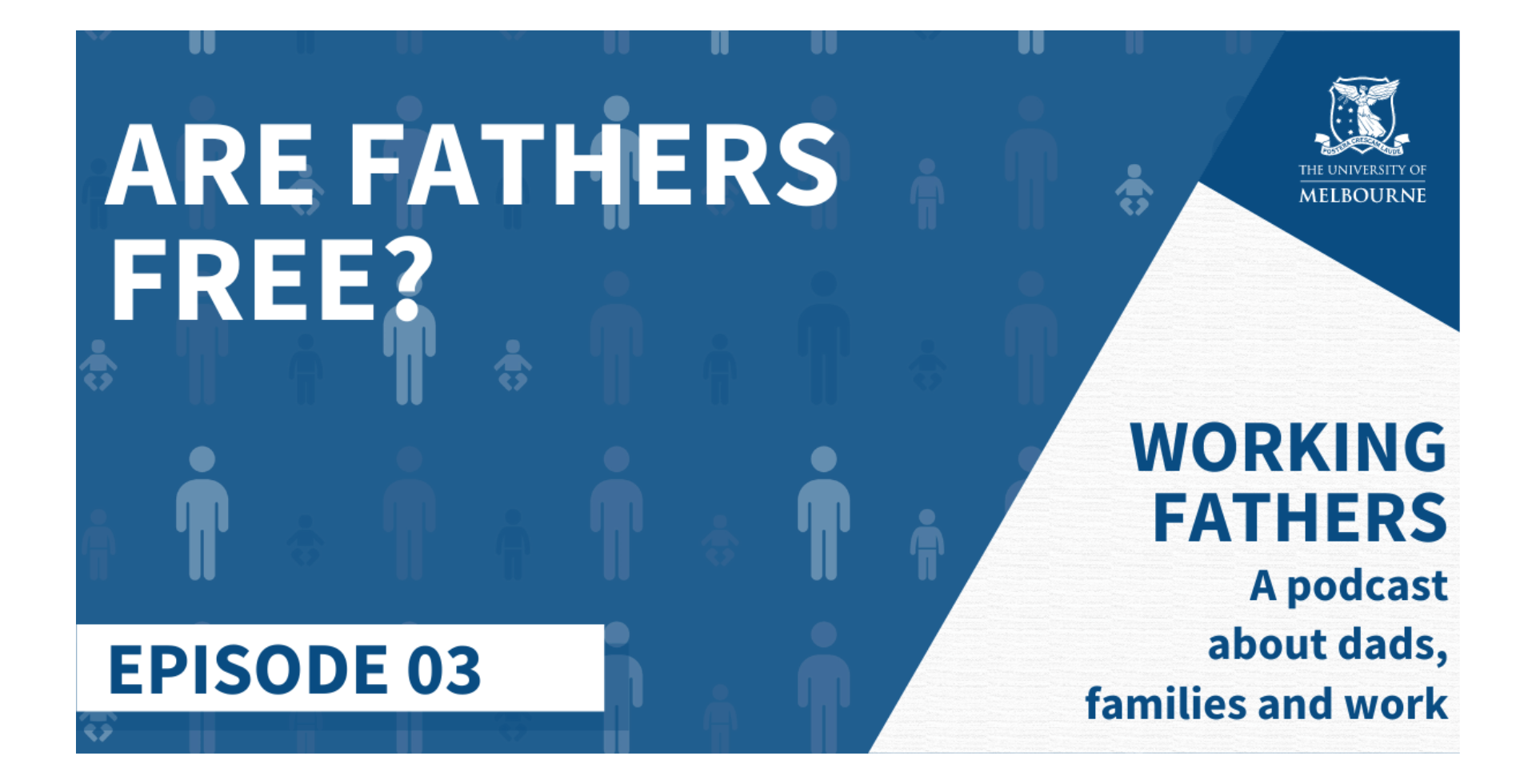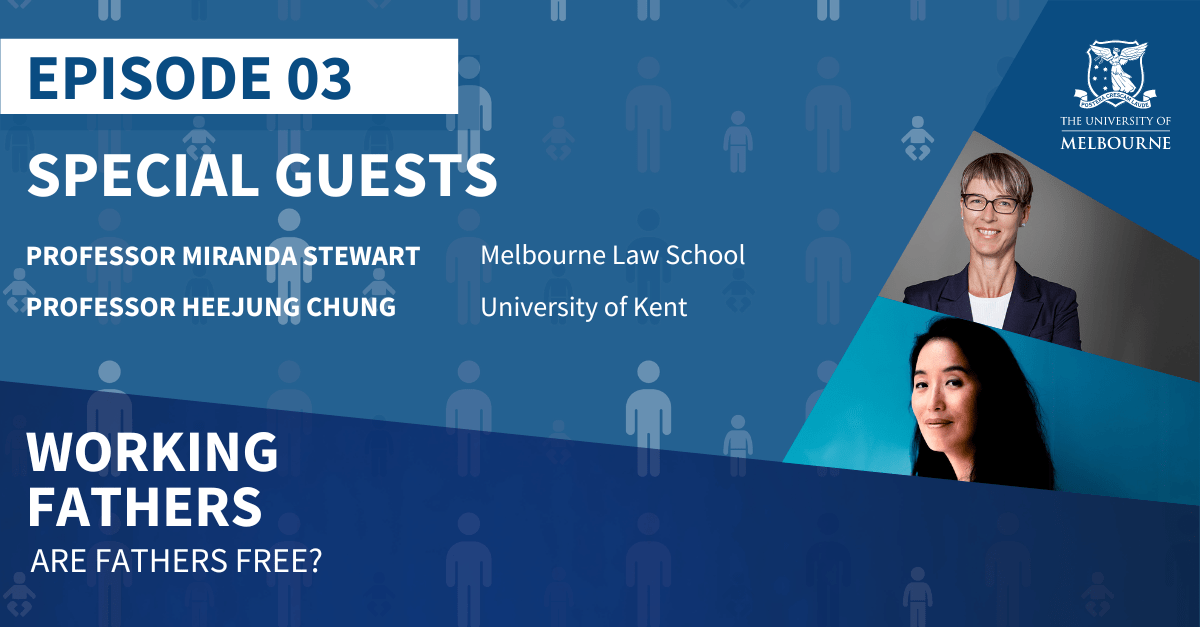
Working Fathers: Episode 3
How much freedom do fathers have? Do fathers have real choices when it comes to decisions about how to divide their time between paid work and caring for the kids at home? And where do government and organisational policies fit in? One of the major societal changes of the past century has been the rise of female employment, particularly in the peak child rearing years. But over the same period, there has been much less change in men’s employment rates. Why hasn’t the rise in women’s employment been accompanied by a drop in men’s employment? And why is part-time work still so much less common among men than it is among women? One answer is that the patterns we’re seeing here are just the product of free choices. But choices are never made in a vacuum, and freedom of choice comes in degrees. In this episode, we look at the laws, policies, and organisational practices that constrain dads’ choices.
 Our guests in this episode are Professor Miranda Stewart and Professor Heejung Chung.
Our guests in this episode are Professor Miranda Stewart and Professor Heejung Chung.
Professor Miranda Stewart – Melbourne Law School
Miranda Stewart is Professor of Law at the University of Melbourne Law School where she is Director of the Tax Group and is a Fellow at the Tax and Transfer Policy Institute at the Crawford School of Public Policy, The Australian National University. Miranda was the inaugural Director of the Institute from 2014 to 2017.
Twitter: @AusTaxProf
Explore more of Miranda’s work:
Miranda Stewart (ed), Tax, Social Policy and Gender: Rethinking Equality and Efficiency, ANU Press 2017.
Miranda Stewart, ‘”Are You Two Interdependent?” Family, Property and Same-sex Couples in Australia’s Superannuation Regime’, Sydney Law Review 28.3 (2006): 437–476 (A*).
Professor Heejung Chung – University of Kent
Professor Heejung Chung completed her PhD in Sociology at the ReflecT, Tilburg University and AIAS/HSI, University of Amsterdam, her MSc in Research in Social Policy from Edinburgh University’s School of Social and Political Studies and her MSW major in Social Policy and BA in Social Welfare from Yonsei University. Professor Chung’s interest lies in examining different labour market patterns and outcomes across European welfare states. More specifically she is interested in exploring gender inequalities both in the labour market and at home, and the role different labour market policies such as flexible working arrangements have in changing these relationships.
Website.
Twitter:@HeejungChun
Explore more of Heejung’s work
Heejung Chung, The Flexibility Paradox: Why Flexible Working Leads to (Self-) Exploitation. Policy Press, 2022
Heejung Chung & Cara Booker, (2023), ‘Flexible Working and the Division of Housework and Childcare: Examining Divisions across Arrangement and Occupational Lines’, Work, Employment & Society, 37.1 (2023): 157–175.
Richard J Petts, Stéfanie André, Daniel L Carlson, Heejung Chung, Melissa A Milkie, Chantal Remery, Casey Scheibling, Kevin Shafer, Mara A Yerkes, href=”https://protect-au.mimecast.com/s/IZJ4CzvOL5hRxrEYOhVn0Dh?domain=tandfonline.com” target=”_blank” rel=”noopener”>Fathers Stepping Up? A Cross-National Comparison of Fathers’ Domestic Labor and Parents’ Satisfaction with the Division of Domestic Labor During the COVID-19 Pandemic’, Journal of Family Studies, 29.6 (2023): 2650–2679
Deniz Yucel & Heejung Chung, ‘Working From Home, Work-Family Conflict, and the Role of Gender and Gender Role attitudes’, Community, Work and Family, 26.2 (2021): 190–221.
The transcript for Episode 3, including links to articles and reports, can be found here.